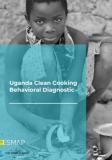Publications

This primer is concerned with energy use and efficiency of network-based water supply and wastewater treatment in urban areas. It focuses on the supply side of the municipal water cycle, including the extraction, treatment, and distribution of water, and collection and treatment of wastewater—activities which are directly managed by water and wastewater utilities (WWUs). Demand-side issues of the municipal water cycle, including water-use efficiency and water conservation, are referred to where linkages to energy efficiency (EE) are critical, but are not discussed in detail.
Improving EE is at the core of measures to reduce operational cost at WWUs. Since energy represents the largest controllable operational expenditure of most WWUs, and many EE measures have a payback period of less than five years, investing in EE supports quicker and greater expansion of clean water access for the poor by making the system cheaper to operate.
The Energy Efficient Cities Initiative (EECI) of ESMAP was launched in 2008 to support municipal EE scale-up in World Bank (WB) operations and WB client countries. This primer is part of ESMAP’s knowledge clearinghouse function to inform WB staff working in urban water supply and wastewater management, as well as in energy, about the opportunities and good practices for improving EE and reducing energy cost in municipal WWUs.

